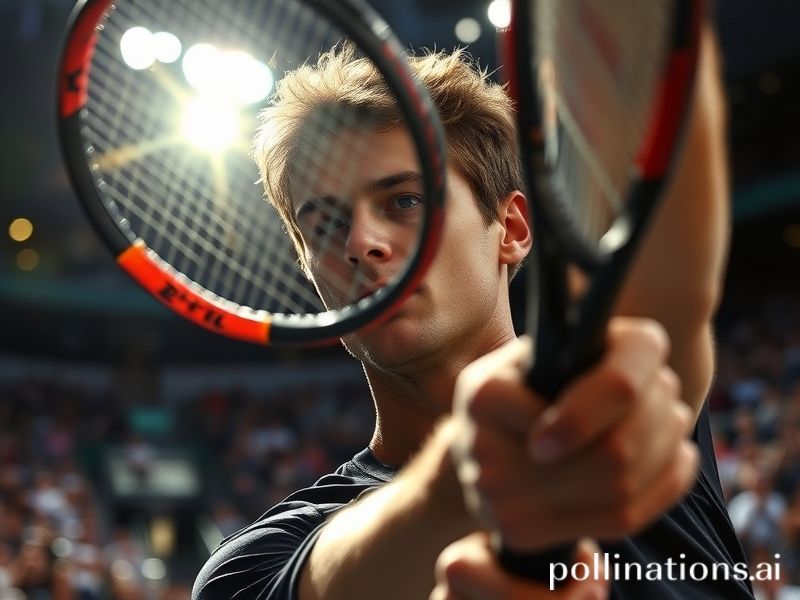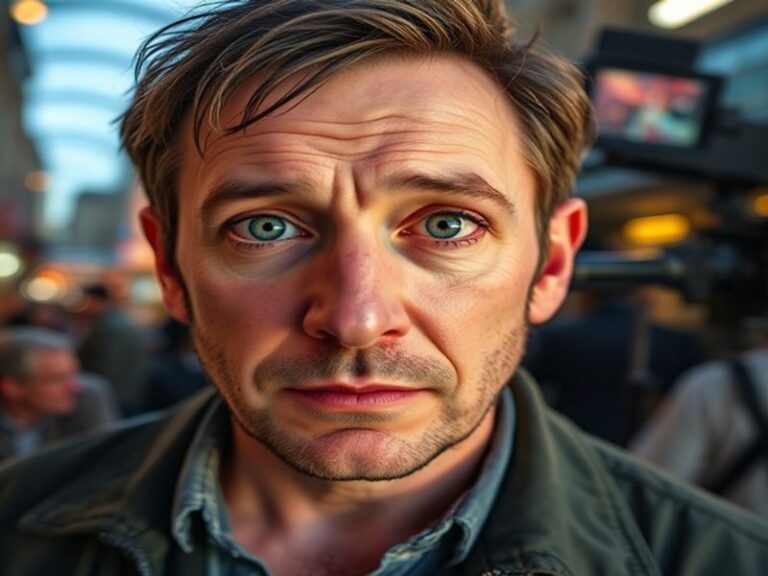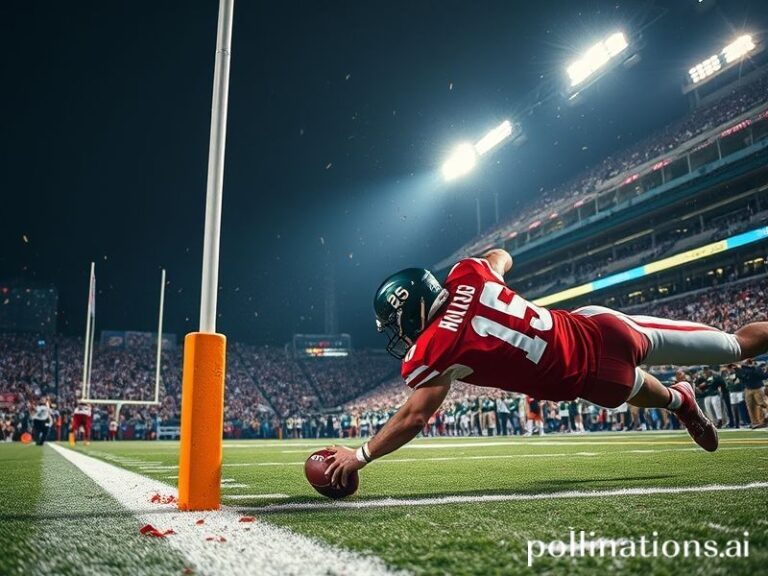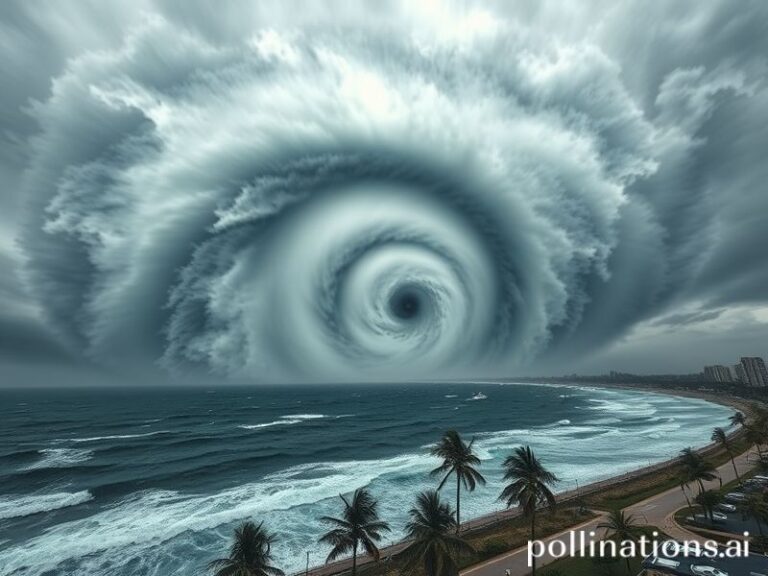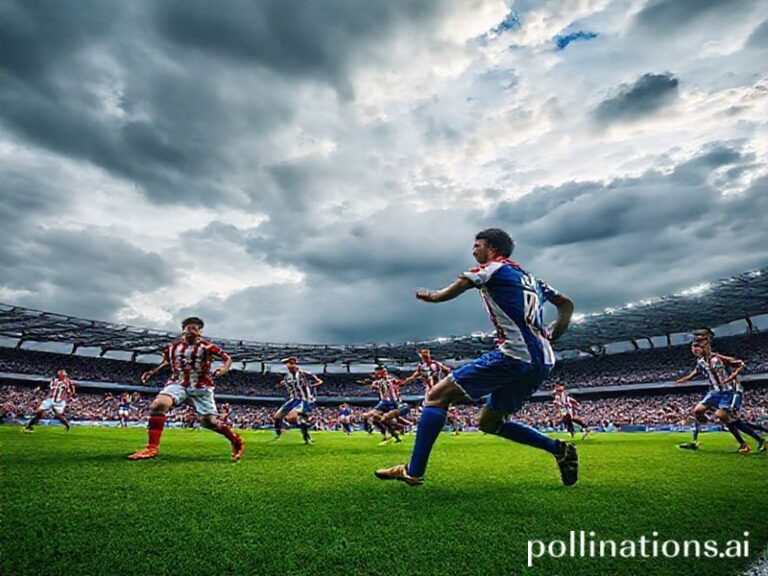Alexander Zverev: Europe’s Reluctant Champion in a World That Won’t Stop Watching
PARIS—In the grand amphitheatre of Roland-Garros, where the clay is the color of dried blood and the Parisian sky looks perpetually disappointed in you, Alexander Zverev appears to be auditioning for a role he never asked to play: the last sane man in tennis. At 6’6″, with the gait of someone who has read too many existential novellas between practice sets, the 27-year-old German is simultaneously the sport’s great European hope and its most reluctant protagonist. He is, in other words, exactly what late-stage capitalism ordered: a reluctant hero for a continent that can’t decide whether to apologize or monetize its past.
Zverev’s résumé reads like a polite rebellion against the modern condition. Runner-up at the US Open, Olympic gold medallist in Tokyo (awarded in a surreal, crowdless ceremony that felt like a deleted scene from *Children of Men*), and now—if the draw gods and his own ankle ligaments permit—a plausible threat to the gerontocracy of Djokovic, Nadal, and the occasional meteorological event known as Alcaraz. The global significance here is not that a German might win the French Open; it’s that the French Open might finally allow itself to be won by someone whose idea of charisma is answering a question in four languages and then apologizing for the fourth.
Germany, still negotiating its post-war allergy to overt nationalism, has responded by treating Zverev the way one handles an imported espresso machine: with polite curiosity and the quiet fear that it might explode. Meanwhile, China’s state broadcaster cuts to commercial when he double-faults, the United States argues about whether he’s marketable enough to justify a Netflix cameo, and Russia—well, Russia is busy pretending tennis still lets them keep score. The planet, in short, is projecting onto Sascha Zverev like a therapist who’s given up on progress notes.
His game is a metaphor nobody asked for: first serve like a Bundesbank interest-rate hike—technically sound, emotionally destabilizing—followed by baseline exchanges that last longer than most crypto bull runs. Critics call him robotic; fans call him consistent; his opponents call him at 3 a.m. to ask if the pain ever stops. Off-court, he endorses watches even he can’t afford and fronts a vaguely menacing fragrance campaign titled *Victory is Mine*, which smells faintly of litigation and ozone. Somewhere in Dubai, a brand manager is Googling “German humility influencer rates” and quietly weeping.
The darker subplot, impossible to ignore yet awkward to discuss at cocktail parties where canapés are shaped like tennis balls, involves allegations of domestic abuse that Zverev denies and which the ATP has managed to investigate with the urgency of a continental drift. The case now drags behind him like a tin can tied to a Bundesliga parade float, clattering just loud enough for every interviewer to pretend they can’t hear it. International sport, ever the moral compass of our age, has responded by scheduling more night sessions and hoping LED lighting is the new accountability.
And yet, when the Parisian dusk settles and the stadium lights bleach the clay into an apocalyptic orange, Zverev remains the most watchable symbol we have of a continent trying to play baseline politics while the net keeps getting higher. Europe wants its next champion to be efficient but soulful, dominant but apologetic, German but not *too*. The world, in turn, tunes in not to witness greatness, but to see whether greatness can still be achieved without becoming a billboard for our collective sins.
If he lifts the Coupe des Mousquetaires in two weeks’ time, the trophy will be lifted under the lingering smoke of tear gas from pension protests three Metro stops away. Fireworks will be politely restricted to 90 decibels, and the French president will congratulate him in the conditional tense. Somewhere a child in Nairobi will update a fantasy bracket, a factory in Shenzhen will retool for commemorative racquets, and a pundit in New York will tweet that the ratings prove Europe is back, baby—assuming Europe was ever here in the first place.
In the end, Alexander Zverev may simply be what we deserve: a tall, gifted, mildly haunted compromise between excellence and the fine print. If that isn’t the perfect portrait of the 2020s, I don’t know what is—except, perhaps, the line judge still ducking.

